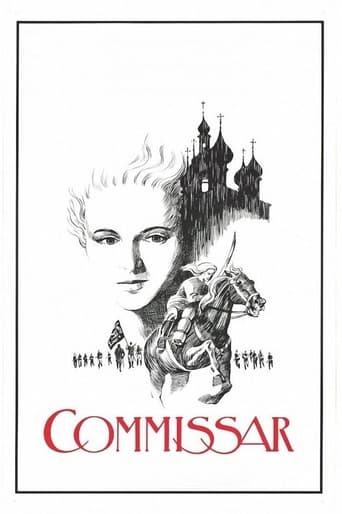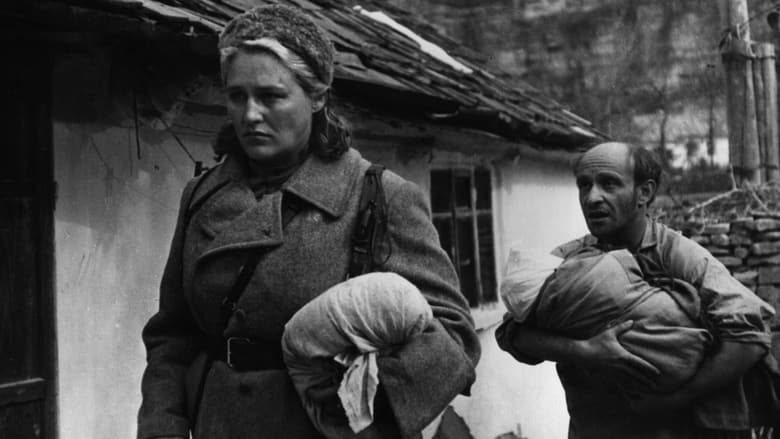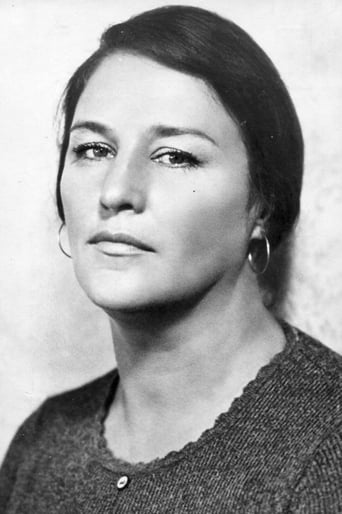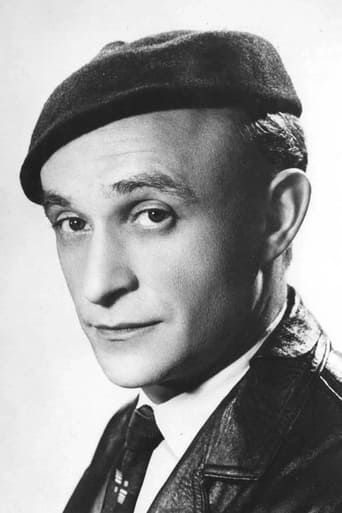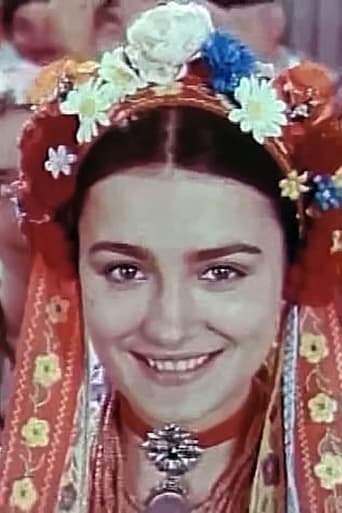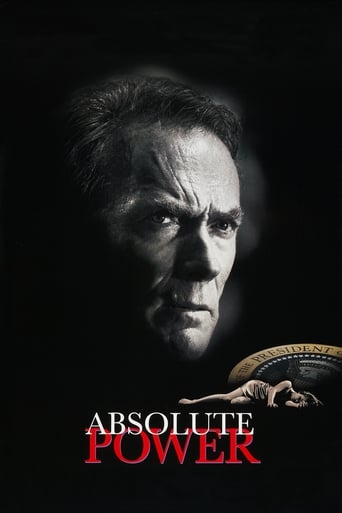The Commissar (1967)
Klavdia Vavilova, a Red Army cavalry commissar, is waylaid by an unexpected pregnancy. She stays with a Jewish family to give birth and is softened somewhat by the experience of family life.
Watch Trailer
Cast
Similar titles



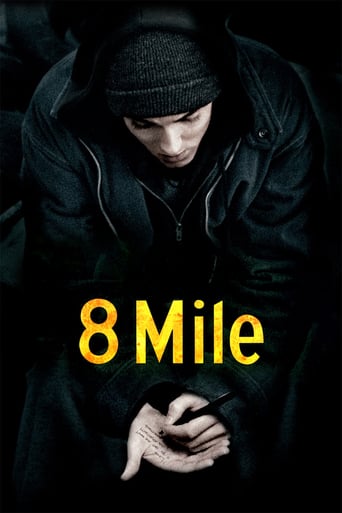

Reviews
Redundant and unnecessary.
Perfect cast and a good story
Good story, Not enough for a whole film
A brilliant film that helped define a genre
It is understandable why Commissar was banned at its original 1967 release. Chronologically one of the latest films that can be classified as a "Thaw film," it takes the theme of the "individual over the collective" and extended it into dangerous, perhaps even un-Soviet territory. Despite deStalinization, the Soviet Union and its Communist ideals still stood—the collective was still to be seen positively, and the pure, militaristic attitude of the people was still important. By introducing Commissar Klavdia as an emotionless, militaristic "maiden" with male mannerisms at the beginning, and proceeding to reveal her personal, human side through her feminineness, pregnancy, and change of clothing as she was cared for by a Jewish family, the film interprets the Revolution as a "softening of Communist values." By changing Klavdia from the officer who ruthlessly sentenced a Red deserter to the tribunal at the beginning to being a scared, doubtful mother who seemed unsure of whether or not the new regime would bring "trams and success" when the idea was challenged by Yefim, Commissar, is questioning the validity of Leninism altogether! It becomes a defiance, not a "Thaw" reinterpretation, which is why it likely got banned. Another huge factor to its banning may have been the heavy sympathy for the Jewish faith that it evokes—anti-Semitism was prominent in the Soviet Union even after Stalin. Once it was released under Gorbachev however, the film was allowed to intrigue viewers with its whirling camera shots depicting Klavdia's flashbacks, and its interest in the effects of the Revolution on the psychology of children, by showing how messed up kids got under switching regimes. Understandably banned during its time, but it is a good film about the Revolution nonetheless.
Commissar boasts the best soundtrack of any movie I have seen so far, and the cinematography is wonderful. It has come a long way since earlier Soviet films in which the camera is frantically switching back and forth. Specifically, the shots at the start of the film present a detailed scenery, while at the end, we see more focused views, like when the horses are pulling supplies.But my favorite feature of the film has to be the ambiguous ending. We aren't told if Klavdia survives and comes back to her child, or of its fate. This is a twist from similar movies. In Ivan's childhood, we find out that Ivan is dead at the end of the film. In Ballad of a Soldier, we know our soldier is already dead. That's not to say we don't feel for these characters, but there's little left to the viewer. All the information is given to us in the film - we aren't asked, "Do you believe Alexei survives and returns home after the war?" He doesn't. That automatically sets the tone for the rest of the film. With Commissar, we can ask ourselves, "Is this a hopeful film, or a darker one?" It's true that it has its share of conflict, but we can choose to believe the characters are happy at the end if we want. We do still know what ultimately happens historically, but the characters can be separate from that.Where the movie is flawed for me is in its simplistic setup. A woman needs to rely on people she is hesitant to trust and ends up trusting them. That's a great plot line, but for 60 minutes, not 103 minutes. As I watched the movie, I couldn't help but feel it could have done more with its time. In Ballad of a Soldier, there are multiple stages to the journey, each different. In Cranes Are Flying, the story is about Veronika, but switches to very distinct scenes of Boris, as well as focusing on the characters' lives before, during, and after the war. Here, we see Klavdia at the village, and that's about it. Yes, we see the village before and after the conflict, and Klavdia before and after she gives birth, but it could have been better still. We could have seen Klavdia's soldiers trying to make do without her. Or a view of the White Army. The film is solid and stands on its own, but it feels like more could have been made.
The Komissar is successful because it is thought provoking and evokes emotion from the viewer. Interestingly, although this film deals with a Jewish family and various issues of Judaism, the careful observer notices that the film is also full of symbols of Christianity. In fact, there are so many of these examples that it leads the viewer to wonder whether the filmmaker may have intended to make a commentary on the relationship between Judaism and Christianity. Although modern Christianity and Judaism are quite different from each other, they have very similar backgrounds. Indeed, prior to the birth of Jesus, they were both one religion, and became separate because Jews refused to accept Jesus as the Messiah, while Christians believed that his life was the fulfillment of Old Testament prophecy.Some of the Christian symbols in the film are less conspicuous than others, and blend into the film seamlessly. For example, there are several scenes in the film that show crosses in the background. At one point the camera focuses on a cemetery that is filled with crosses. There are also crosses on top of churches in many scenes. The connection between Judaism and Christianity is apparent in the fact that in one scene the focus shifts back and forth between a Jewish synagogue and a Christian church, which are both being boarded up.The beginning of the film is marked by the perspective of the two female characters, Klavdia and Maria, regarding pregnancy and childbirth. It is significant that Klavdia was an important military figure, but was forced to give up her command because she was pregnant; this would obviously never happen to a man. Although Maria has six children, she talks openly with Klavdia about the pain of childbirth, stating that it "is not good for the mother, the child, or God." The scene where Klavdia gives birth further emphasizes the pain of childbirth. In both Jewish and Christian history, the pain of childbirth is a consequence that God gave to women in response to Eve's decision to tempt Adam with the forbidden fruit in the Garden of Eden.There is one scene in the film that is particularly touching because it reveals the depth of the relationship between Yefim and Maria, who do not show such blatant affection at any other point in the film. This is the scene where Yefim washes Maria's feet. As he does so, he looks up lovingly into her eyes, and says, "I love you." This scene is both tender, and also a little shocking because throughout the rest of the film Yefim is portrayed as brusque and a little rough around the edges. This is the one time in the film when the viewer is allowed to see through his exterior. It is interesting that the filmmaker chose to use the washing of feet as the interaction between the two characters during this personal moment. The washing of feet is a symbol that relates directly back to Christianity and the Bible, bringing to mind Christ washing his disciples' feet before he was crucified.The film ends with Klavdia's decision to leave her baby with Yefim and Maria. This seems ironic because their relationship did not start out well Yefim was outraged that Klavdia was taking a room in their house and did everything that he could to resist. Despite the circumstances, however, a friendship developed between the characters, and they learned to trust, and even to like each other. Klavdia chose to leave in order to protect her child, and also the family that she had come to love. She sacrificed herself in order to protect the other characters. Again, this situation seems to parallel Christianity; Christ sacrificed himself to protect his followers.While the main characters of this film are Jewish, it seems noteworthy that there are so many similarities between different aspects of the film and Christianity. If it were only the crosses that served as symbols of Christianity, that might be dismissed as part of the setting of the film, and irrelevant to the story. There are, however, so many different parallels and religious undertones (particularly Christian) that it appears that they should be significant.
Adapted from Vasiliy Grossman's novel, "Komissar" (called "The Commissar" in English) was banned for twenty years in the Soviet Union; the censorship board considered it "pro-Zionist" due to its sympathetic portrayal of Jews. It portrays pregnant commissar Klavdia Vavilova (Nonna Mordyukova) staying with an impoverished Jewish family during the 1918-21 civil war. This is the sort of movie that shows the lives of forgotten people in the midst of world events; the father Yefim (Rolan Bykov) complains of how things have not really improved for the Jews since the revolution. I would say that that's something that historians should note.As an FYI, the woman who is teaching the Russian cinema class here in Lewis & Clark College was at the premiere of "The Commissar" in Moscow in 1987.
